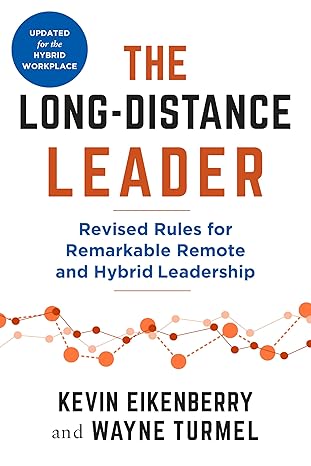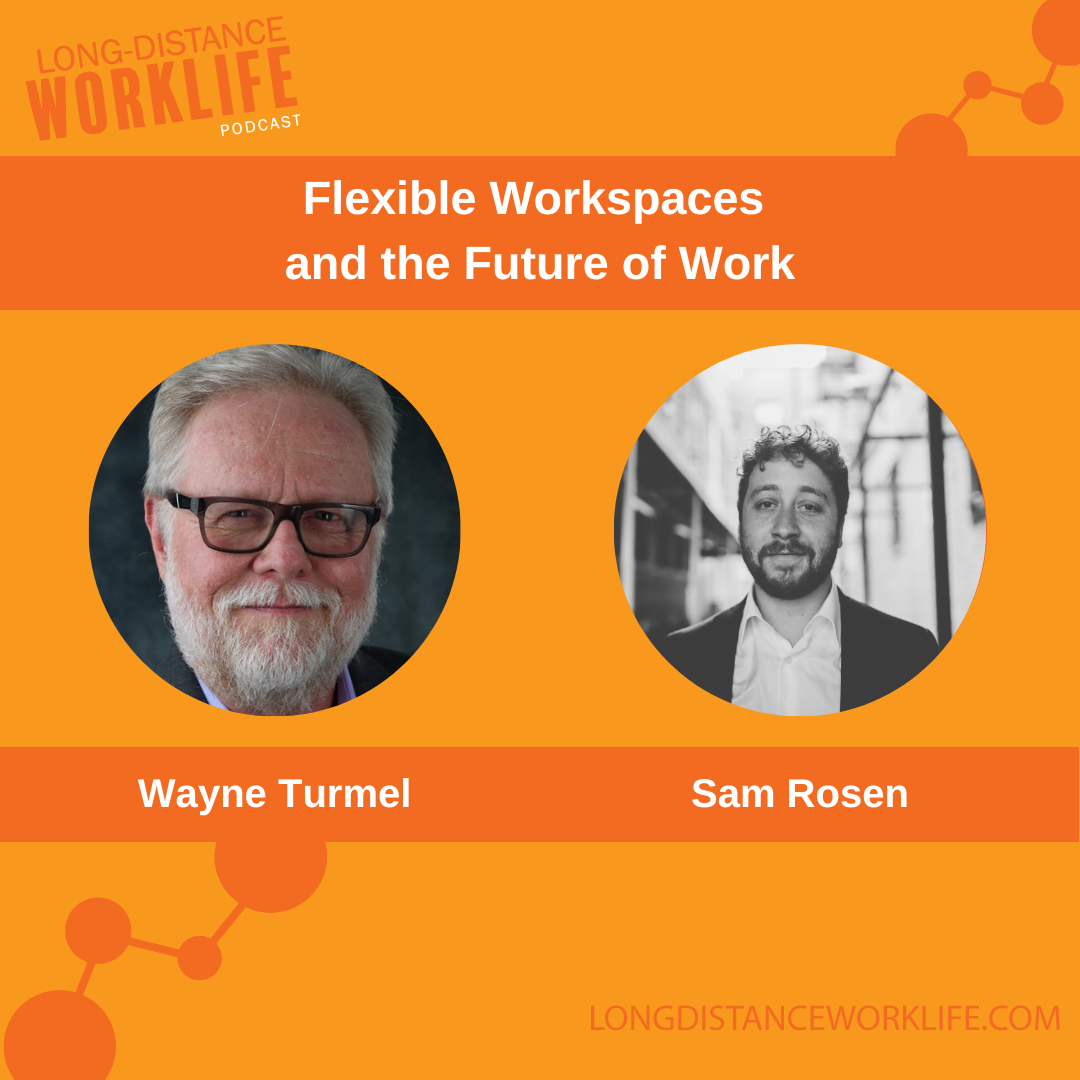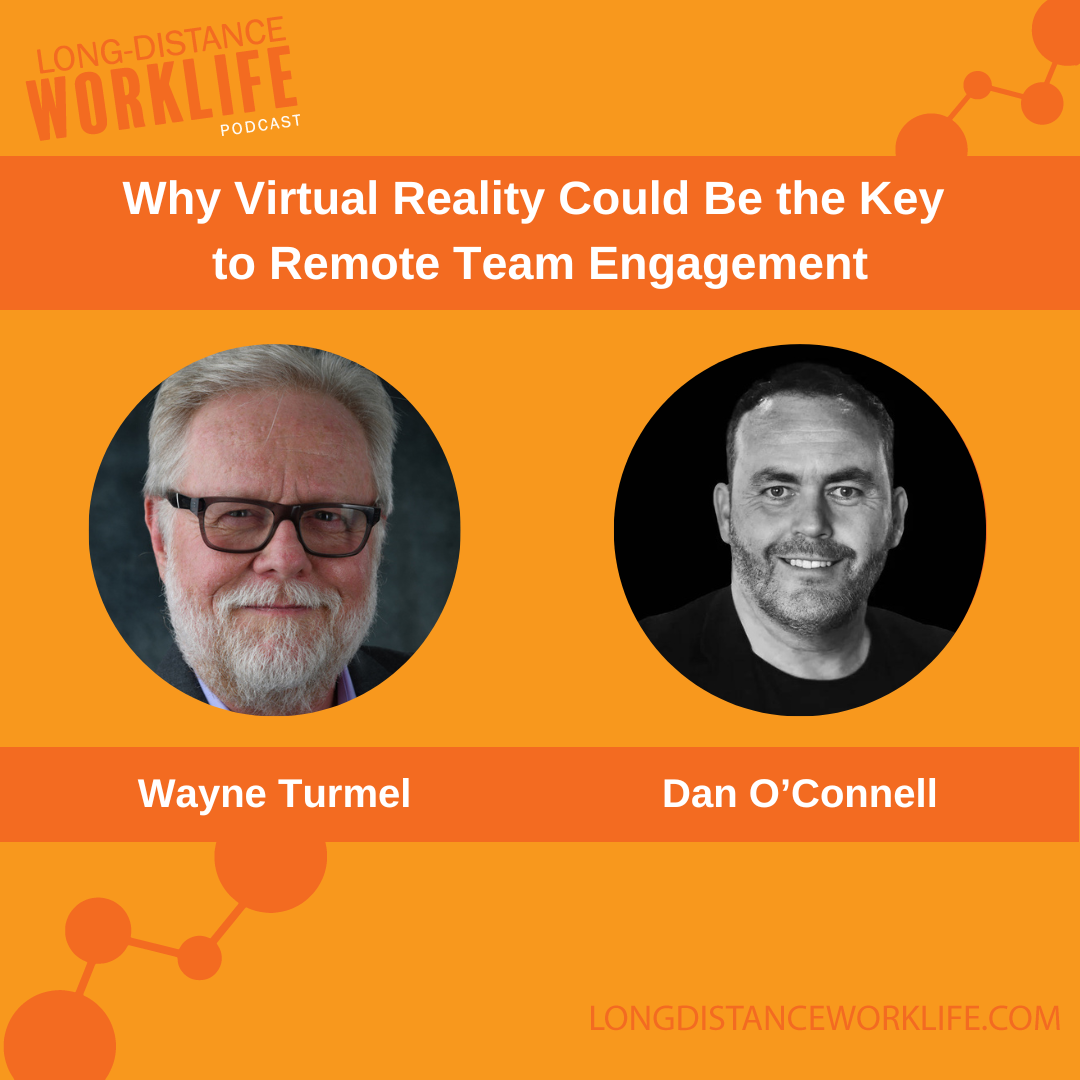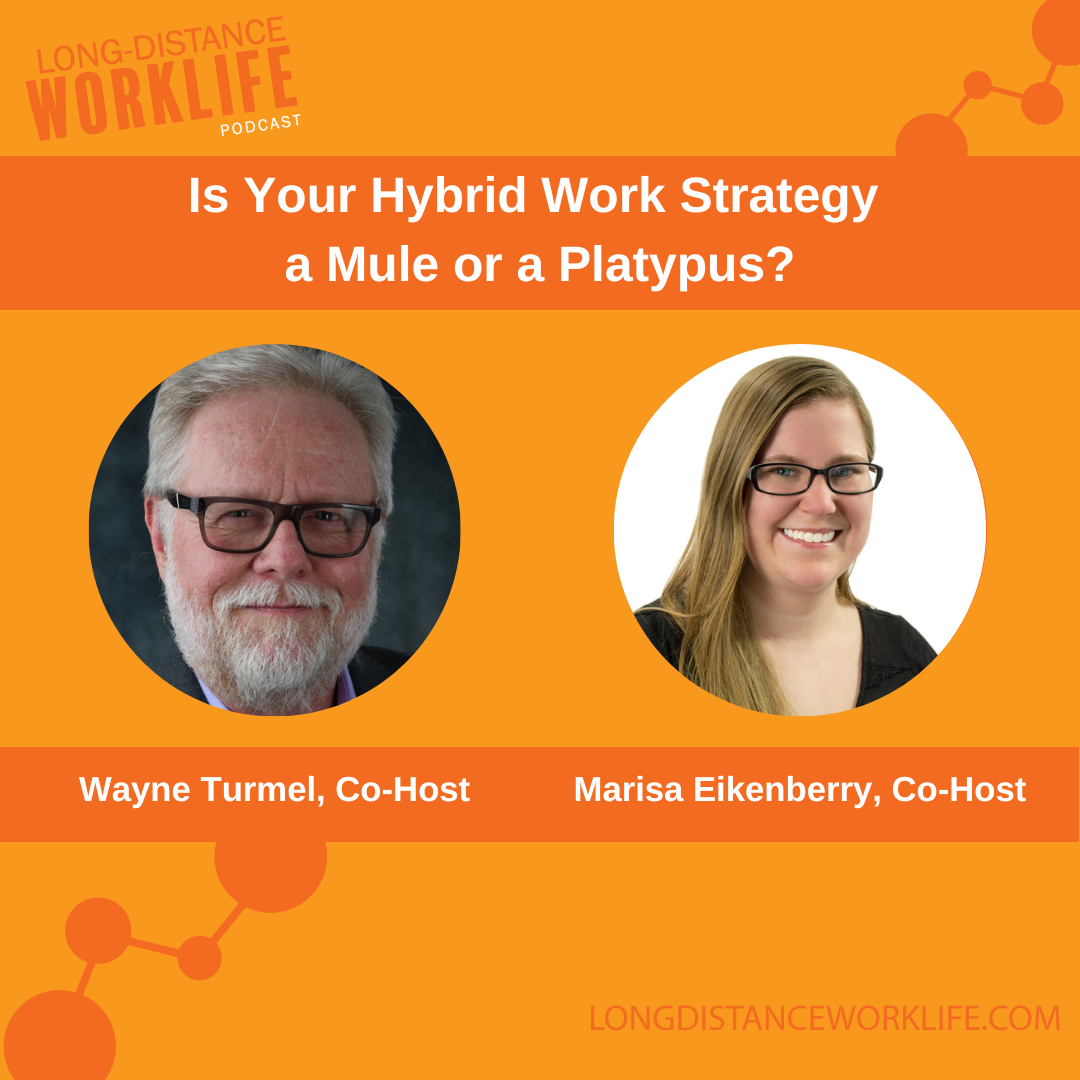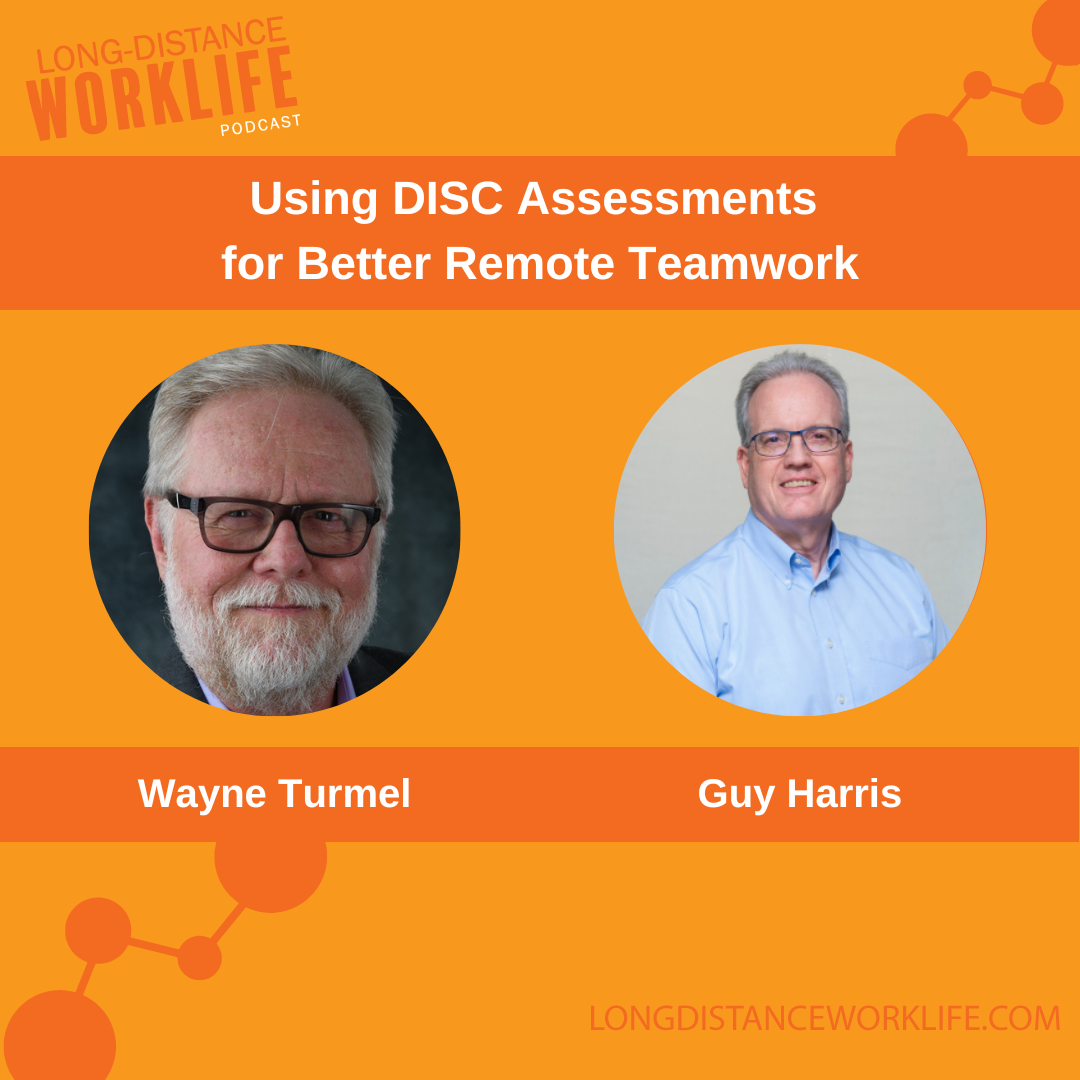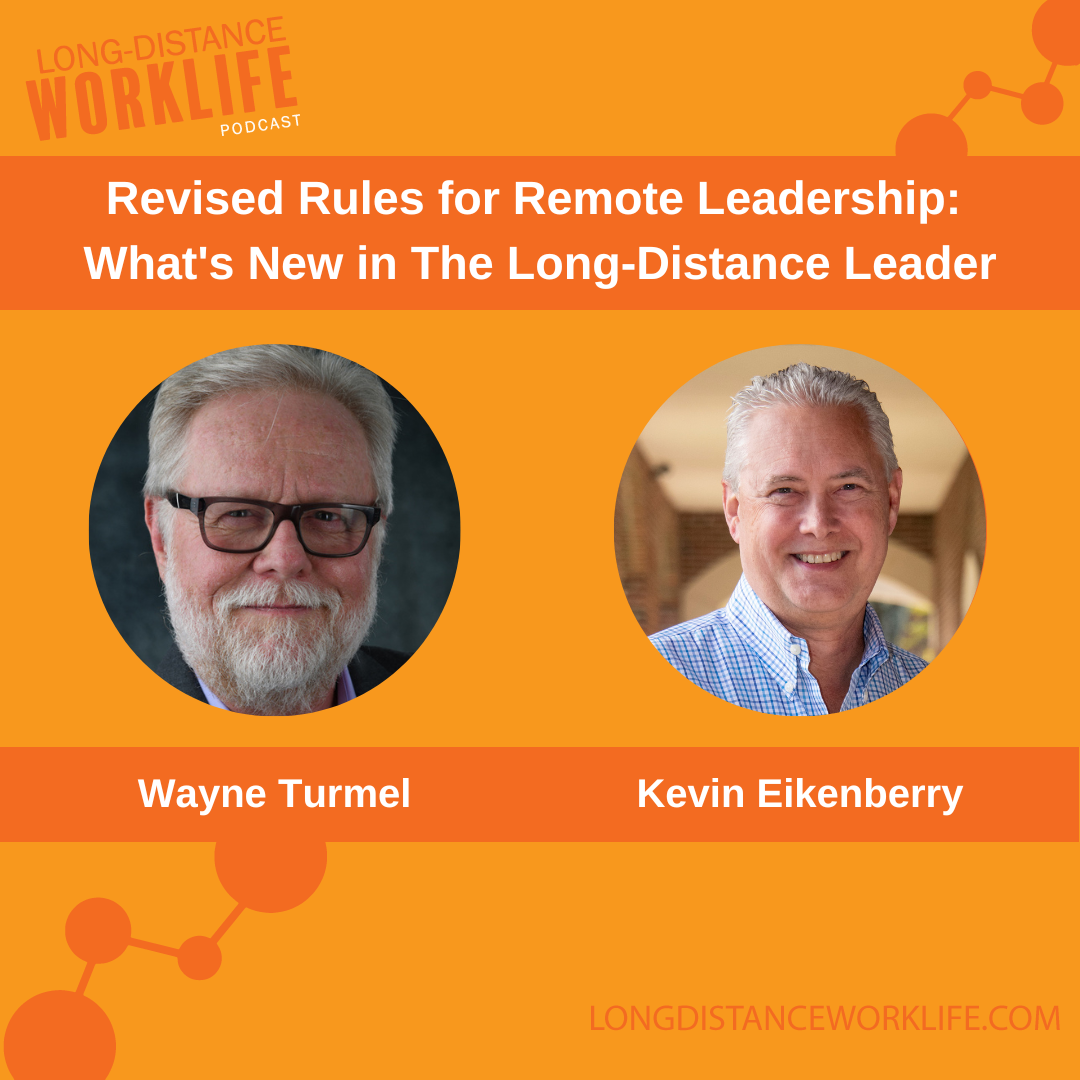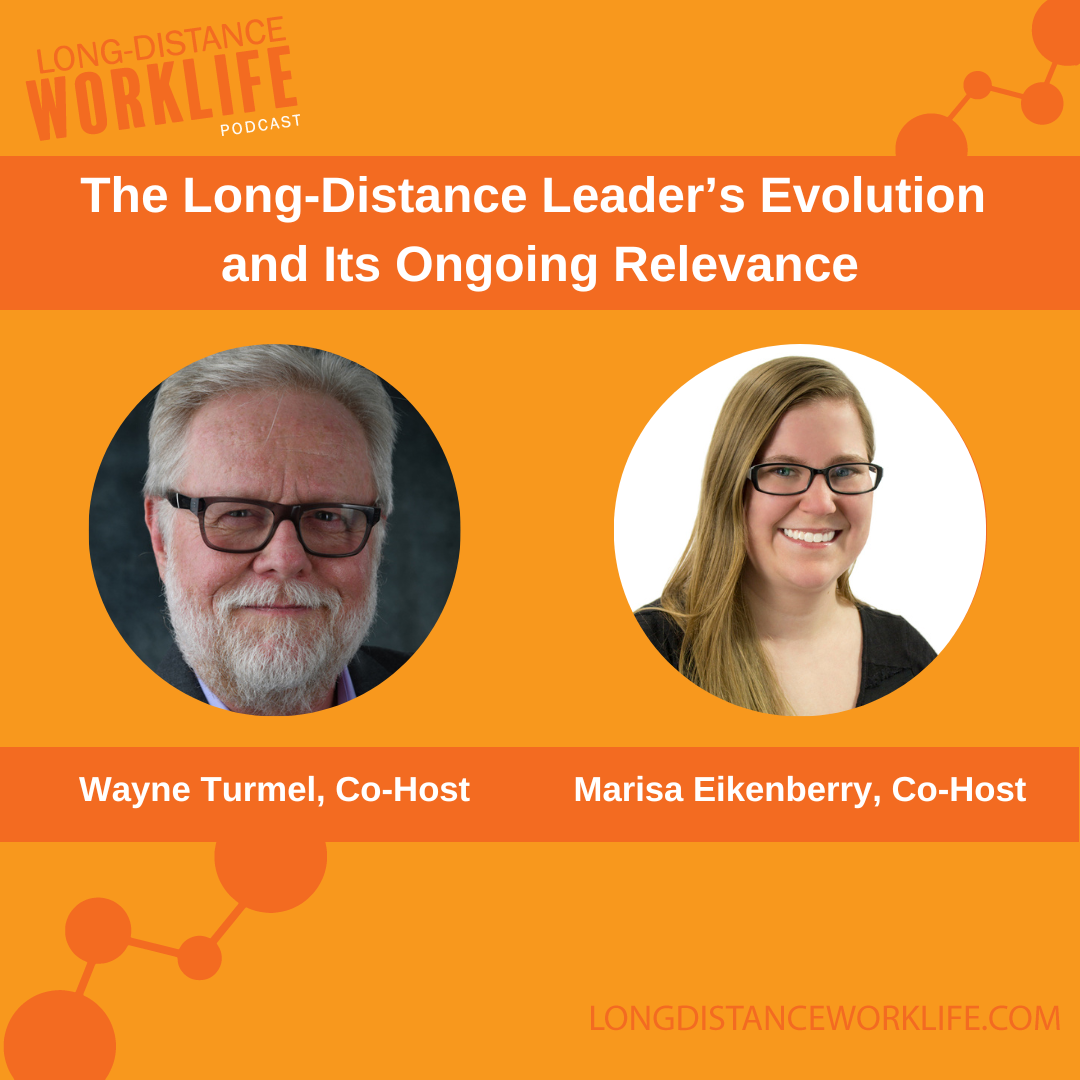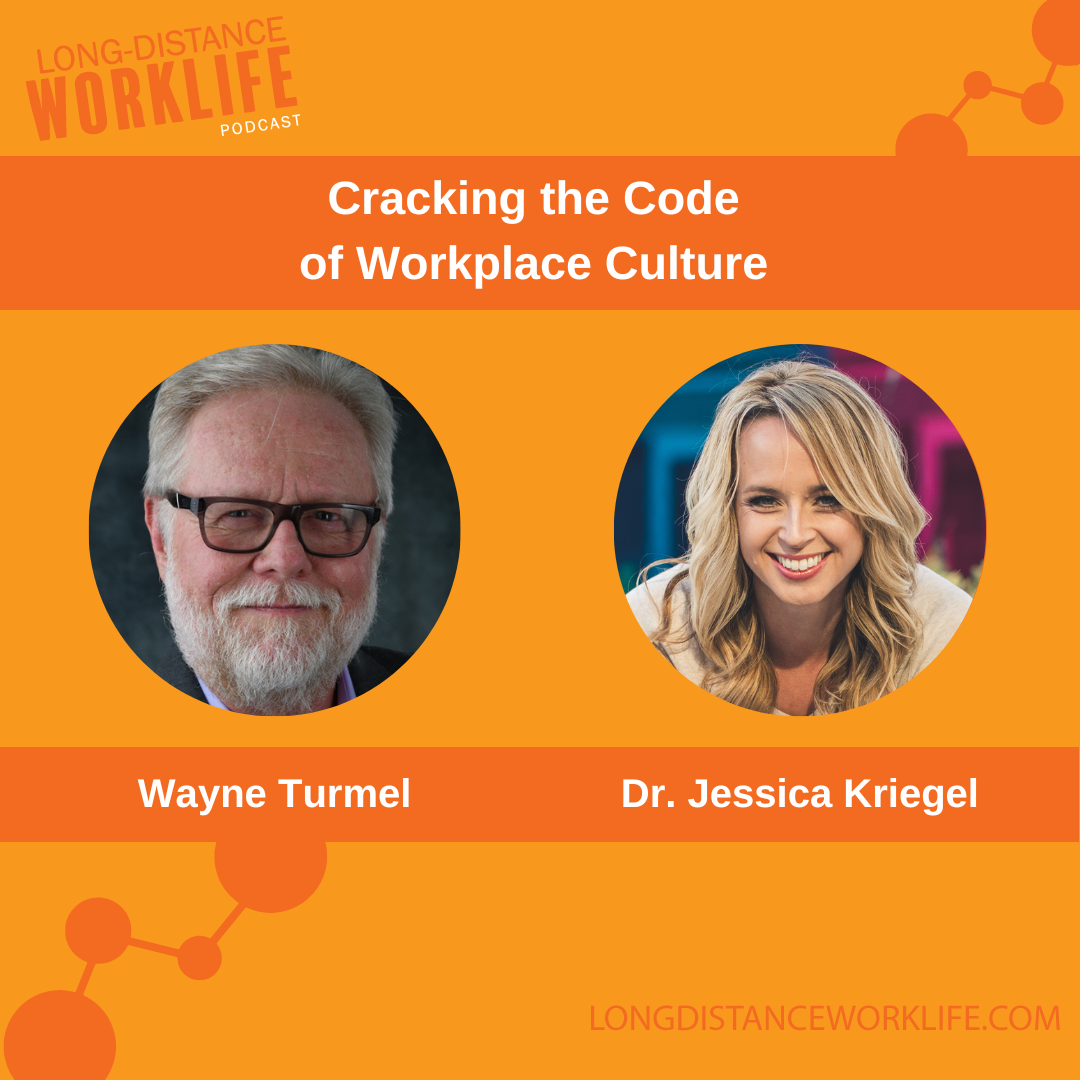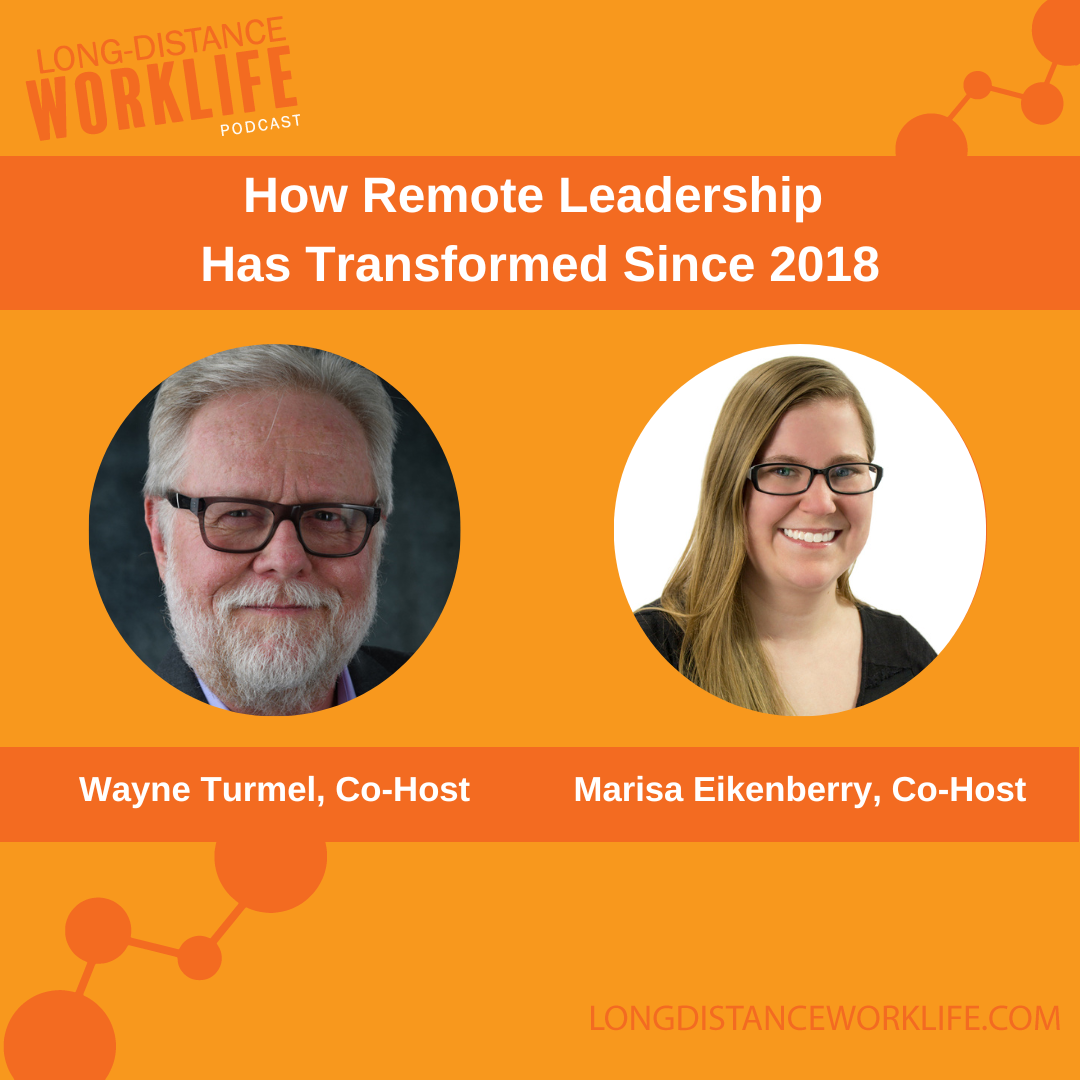Wayne Turmel is joined by Sam Rosen, the founder of Deskpass, to explore how the office landscape has changed in recent years. Sam shares his journey from opening one of Chicago’s first co-working spaces to developing tools that connect companies and remote workers with flexible workspaces. They discuss the evolving role of offices, how companies can make strategic real estate decisions, and the benefits of offering co-working options to remote and hybrid teams. Sam also dives into the differences between designing workspaces with a human-centered approach versus the traditional real estate mindset. Tune in to discover how you can leverage flexible spaces to improve productivity and retain top talent.
Key Takeaways
- Flexible workspaces provide a valuable alternative to traditional offices, offering professional environments tailored to diverse work needs.
- A human-centered design approach prioritizes worker needs over merely filling office space, unlike traditional real estate perspectives.
- Companies are reducing their office footprints to save costs while using co-working spaces to maintain access to professional environments.
- Proximity and convenience are key benefits of co-working spaces, making them ideal when working from home isn't suitable.
- In-person meetings should be reserved for deep collaboration or cultural reinforcement, with a focus on asynchronous work whenever possible.
- Successful remote companies prioritize culture, communication tools, and processes over physical office space.
- Access to flexible workspaces helps attract and retain talent, expanding the hiring pool and supporting employees' varied work preferences.
00;00;07;27 - 00;00;37;23
Wayne Turmel
Hello, everybody. Welcome back to the Long Distance Worklife, the podcast where we attempt to help you thrive. Survive, generally keep the Weasels Hat Bay when we are dealing with remote and hybrid work. My name is Wayne Trammell. I am the subject matter for remote work and the evolving workplace at the Kevin Eikenberry Group. My usual partner and producer, Marissa is not here today.
00;00;37;25 - 00;01;03;11
Wayne Turmel
The good news is that means we have an interview with a fabulous guest, in this case, Sam Rosen from Desk Pass, who is going to talk to us about the changes that digital work have wrought upon us over the last couple of years. And so, with no further ado, joining us from Chicago is Sam Rosen. Hi, Sam.
00;01;03;13 - 00;01;05;24
Sam Rosen
Hi, Wayne. Thanks for having me, man.
00;01;05;26 - 00;01;13;07
Wayne Turmel
Thank you for being had a, real quick. Who are you and what steps pass and why do we care?
00;01;13;10 - 00;01;38;02
Sam Rosen
Good question. I'm sam, and, I run a little business called that space I've been in, sort of the intersection of design and technology and where in how we work for about 15 years. So I started by, started a branding design agency and then opened the first co-working space in Chicago, where there are about 300 in the whole world now.
00;01;38;02 - 00;02;05;06
Sam Rosen
There's 40, 50,000. And since then, I've been building tools and technology around this problem. So today, I work on desktops. I'm the founder of that space. And that space is a tool that really connects individuals and companies with thousands and thousands of fantastic, flexible workspaces, co-working spaces, you know, places to book a desk for a day, meeting for an hour, private office, all on demand.
00;02;05;06 - 00;02;06;26
Sam Rosen
And that's that's what I do.
00;02;06;28 - 00;02;22;17
Wayne Turmel
All right. So whenever anybody creates a technology or does anything like that, they're clearly trying to solve for a problem. So what was the problem you were trying to solve for, with past?
00;02;22;20 - 00;02;50;09
Sam Rosen
Yeah. You know, it's funny because a lot of people in this space now, come from finance and come from real estate. And I've always come from design, and just trying to solve problems for humans. So, coming across co-working really, really early realized that was a really interesting solution to offer a place for people who want to work but necessarily don't work for the same company and just are looking for a space to get work done nearby.
00;02;50;09 - 00;03;19;08
Sam Rosen
So, and I found that to be really interesting and a new problem. And then the, the other problem was, and I think this is more clear than ever, is, offices have always been pretty empty. Offices are traditionally fairly underutilized, and that's one of the biggest asset classes in the world. So the opportunity to create something out of empty office space and share it with people so they can be happy and get good work done, is seemed like a good problem to solve.
00;03;19;10 - 00;03;39;16
Wayne Turmel
Now. You said something a moment ago, which I've dealt with remote work for 25 years. I should have thought of this, and for some reason I had a blinding flash of the obvious, which is it makes sense for real estate people to get involved in this, because there's all these offices sitting empty, and how are we going to find uses for them?
00;03;39;19 - 00;03;51;10
Wayne Turmel
What in your mind is the difference between coming at it from a real estate standpoint, where it's desks and rooms and whatever, and a design standpoint?
00;03;51;12 - 00;04;19;09
Sam Rosen
You know, I think the perspective we've always had is like, who's way, what is what is waiting live? Who does he live with? Where can he focus and get work done? And how do you build a really brilliant environment for Wayne to get his best work done, irrespective of everything else? And I think often folks that come from real estate and finance are just they're they're trying to put pegs and holes, right.
00;04;19;09 - 00;04;51;17
Sam Rosen
Which is there's empty office space. Let's fill it up. And I think for me, from the design perspective, I think for a long time the experience for workers was really driven around, you know, the the bank that owns the building, the management company that manages the building, you know, supporting the owner of the company that owns the company and building a financial arrangement that works for all those parties, but less so, like Wayne and like what works best for Wayne today.
00;04;51;19 - 00;05;19;23
Sam Rosen
And I think that's where I come from is like, how do you everyone has different needs as workers depending on what company they work for, what role they're in. I got two little kiddos that live in the suburbs, you know, like my kids have Covid today. Like my needs are different today than yesterday, right. And, and I think that's what I'm really interested is solving problems around the human and less around like X, Y, Z Corp and you know, and x, y, z bank.
00;05;19;26 - 00;05;24;20
Wayne Turmel
Okay. So we've done our burn the patriarchy death to make.
00;05;24;22 - 00;05;25;02
Sam Rosen
00;05;25;04 - 00;05;57;25
Wayne Turmel
Peace with this. So let's get really practical. A lot of people, I think, think of I'm either working at home or I'm in the office. What are some of the advantages of these kind of third spaces? Because to me, having other humans around is not the most beneficial piece of this. Yeah. But I have used spaces like this before, so, you know, if somebody is thinking about when does this make sense?
00;05;57;25 - 00;06;01;07
Wayne Turmel
When does it not? What's the the answer there.
00;06;01;09 - 00;06;23;18
Sam Rosen
Yeah. Look, I think there's a lot of things that people will say about what makes a great workspace. But I think the underlying thing is proximity distance. Right. Like if I can't work from home because my kids are home or I don't have a suitable work environment, like trying to find a place close to me that's convenient to me where I don't have to commute or schlep or go.
00;06;23;18 - 00;06;49;19
Sam Rosen
That's a that's an underlying, really important piece. I think. Other than that is not all, but most of these co-working spaces and flexible workspaces, they're like very purposefully built for work. So they tend to be really thoughtful work environments that are built and amenities better than the average office. So, you know, coffee, tea, events, different types of workspaces.
00;06;49;26 - 00;07;09;10
Sam Rosen
I think these often are nicer workspaces than the average workspace. And then the last thing I'd say is I totally connect with what you're saying, which is I don't, you know, like, people need different things and they often need different things at different times. Like some days I need a quiet place to do a podcast or to work on a deck.
00;07;09;11 - 00;07;31;12
Sam Rosen
Right. And then sometimes I'm looking for community. I'm looking for inspiration. I want to be around other people. So the value of a network like that space, or just co-working spaces in general, as you can get exactly what you're looking for typically, and not like a one size fits all solution like your home or HQ.
00;07;31;14 - 00;08;17;11
Wayne Turmel
Yeah. I mean, for me, it's always been helpful when I'm traveling because the hotel room is not always conducive to getting work done. Between, you know, housekeeping banging on the door and, bad Wi-Fi and, you know, whatever. Yeah. So that's when I've done it. As we move more and more to hybrid work and companies are shrinking their physical footprint and doing stuff, and how if I'm the CEO of a company, you know, the notion of paying for a third space, if I'm already paying for an office, might be a bit of a tough sell.
00;08;17;11 - 00;08;19;19
Wayne Turmel
What would you tell that CEO?
00;08;19;22 - 00;08;48;05
Sam Rosen
Yeah. So I think the paradigm of office is changing in a fundamental way. Right. Like one office for everybody to solve everybody's problems. I think is the old paradigm. And I think what we found there was those offices were generally pretty inefficient, generally underutilized and expensive to maintain. I am at the office today. Like, I love them, like I believe in the whole business of selling office.
00;08;48;05 - 00;09;15;29
Sam Rosen
Right. So I think what we're seeing and the thesis that I really have in this space is this notion of office as an ecosystem. And we talked to hundreds and hundreds and hundreds of companies that are thinking about this. Every company is different, different employees, different geographies, different requirements. But I think the prevailing trend that I like I've seen is, companies are, changing as leasing decisions are coming up.
00;09;15;29 - 00;09;39;19
Sam Rosen
Right? They're thinking about, okay, I have all this space. Are people coming to the office? How utilized is it? And they're not abandoning the office full sale. They're typically taking less space. They're reducing their their size of their leased or owned real estate, and they're making it more efficient. They're saying, what is the purpose of this space? This is person of the space together to sell, to do R&D.
00;09;39;22 - 00;10;00;17
Sam Rosen
And let's have fewer square feet, but let's make them better. So people want to use them. And then not mandate that people are there all the time, every day. And instead of saying you have, you can work from office or you can work from home. We're seeing companies become more inclusive and saying, we will meet you where you are, what do you need?
00;10;00;19 - 00;10;18;17
Sam Rosen
And let me help support you with what you need. The value of a a platform like this fast and not to get salesy here is it's on demand pay as you go. So what companies are doing is they're not saying here's another office we're paying for near your house. They're saying work from where you need to get work done.
00;10;18;17 - 00;10;39;06
Sam Rosen
And I've given you a $500 budget that if you want to use it, you can use any of these spaces and we'll pay for it. And then it gives companies the ability to learn like, well, what are my employees really? What? How are they really using space? And how should this, help me address my my work space and strategy in the future?
00;10;39;08 - 00;10;59;06
Wayne Turmel
Yeah, and there are times when you need to have a meeting, but, you know, you don't have a space. I mean, to pay 100, 150 bucks for a meeting room for an hour that everybody can go to and then leave, is probably not a bad investment.
00;10;59;09 - 00;11;01;00
Sam Rosen
And I'd argue.
00;11;01;00 - 00;11;02;10
Wayne Turmel
It's in tonight's meetings.
00;11;02;13 - 00;11;26;14
Sam Rosen
A lot less expensive to have meeting rooms when you need them than a meeting room in your, you know, building that's empty, 90% of that 80% of the time or whatever it might be. So I think people do find that like, flexible solutions tend to be a lot more cost effective than owning heating, maintaining space. That's that's not used.
00;11;26;14 - 00;11;27;00
Sam Rosen
Well.
00;11;27;03 - 00;11;47;26
Wayne Turmel
What are some of the for people that have never, you know, taken advantage of these kinds of situations before? What are some of the ways people use them? Like why would somebody use a space when, you know, they have a home office?
00;11;47;28 - 00;12;19;16
Sam Rosen
So I mean, post through Covid like some of the, the big trends we've seen. So sales teams, right. Like bigger companies that have sales offices. So have like tens or hundreds of sales offices that were never that utilized, we're finding them divesting themselves from those spaces and saying, look, instead of having this office that's kind of far away from where you actually live, we're getting rid of it, but we're going to give you access to desks and meeting rooms and offices as you need.
00;12;19;19 - 00;12;54;25
Sam Rosen
So we see a lot of meetings, right? Like sales meetings, regional meetings, quarterly meetings, client meetings where people are leveraging the the network on demand for that. And I think another big pieces, I think Covid helped companies realize that being co-located to where the office and HQ is isn't as necessary as they thought. So they might have had employees that moved away from Chicago or whatever city are in and now live in Denver or Vegas or wherever it might be, and want to offer something to them rather than saying sayonara, right.
00;12;54;25 - 00;13;15;16
Sam Rosen
Or they're looking for talent and they're instead of just casting a net that's around their geography, they're saying, let's just find great people irrespective of where they live, and then let's support them with what they need. And that's where we see a lot of use with, I think these flexible workspaces and networks like ours.
00;13;15;19 - 00;13;25;20
Wayne Turmel
As CEO, what's the you know, where are your CEO hat for the moment and rejoined the patriarchy.
00;13;25;20 - 00;13;29;13
Sam Rosen
And I'm in,
00;13;29;16 - 00;13;46;01
Wayne Turmel
What is the discussion that you would have with your fellow fellow CEOs? What are the 2 or 3 things that they really need to think about in terms of their offices, in terms of flexible spaces like desk space?
00;13;46;04 - 00;14;12;09
Sam Rosen
Yeah. I mean, I think like the, you know, there is a huge cost savings advantage to leveraging networks like this and taking less fixed real estate and being more flexible. I think like that's a big piece. I think the other advantages to, to remote work is, is right, is talent, both acquiring new talent but also retaining great talent.
00;14;12;09 - 00;14;37;22
Sam Rosen
So like and this is, I think a, you know, that's what these tools are really great at. The last thing I'd say is, you know, some of the pushback you get, in selling what, what we sell and talking to folks is they believe the best work gets done in the office. They believe in, like, the watercooler. And getting people around the table is like, how great work is done.
00;14;37;24 - 00;15;10;11
Sam Rosen
And I I'm very much an advocate of in-person work and getting people together. I think that is work. Great work gets done, but I don't think it gets done there all the time. And I think that, like companies that have been really successful at remote work, like Nvidia, right, like the fastest growing American company right now, like Atlassian, I mean, there's a million really strong examples of fully remote company are very hybrid companies.
00;15;10;13 - 00;15;47;19
Sam Rosen
It's not about workspace, it's about culture. And it's about the having the right tools and the right processes in place as an organization, to like, effectively communicate. And I think those companies are really great because they have the best co-working spaces or the best real estate strategy. It's that they've recognized what's happening in our labor markets and with like the future of the world and where things are trending and they're building the right tools, the right culture, the right processes in-house to get the best result.
00;15;47;19 - 00;15;54;18
Sam Rosen
And that's why those companies are thriving, not because of like, the the watercooler.
00;15;54;20 - 00;16;09;12
Wayne Turmel
I'm going to leave you with one question, and this is just forget the fact that this is what you do for a living as a CEO. When do you decide an in-person meeting is necessary and when do you not?
00;16;09;15 - 00;16;36;12
Sam Rosen
It's interesting because I think of it more as asynchronous meetings like asynchronous work and synchronous work, right? What work does it need to be a meeting at all? And it's actually better if it's a host or it's, it's a, you know, like in the tools and then, okay, which meetings should be synchronous. Right. And I think okay, out of those meetings, which ones?
00;16;36;14 - 00;17;19;12
Sam Rosen
Should be in person. And I think when there's, a huge amount of work to get through, like it's a big meaty problem. I think that's when getting together really, really helps. And I think culturally, like when you feel like the culture you're building is struggling, like the, the and good pep or kind of shot in the arm is let's get people together and remember, like we're humans, like we're not just these little people in these boxes and like, it's the little things outside of just the work of just like learning about your people you work with, building empathy around them.
00;17;19;12 - 00;17;30;19
Sam Rosen
So I think, like, that's the kind of the framework that I like to use is like, does this have to be a meeting at all? And if it's a meeting, are we going to get a lot more squeezed by by doing it in person?
00;17;30;22 - 00;17;55;15
Wayne Turmel
Digging it. Thank you much. Sam Rosen desk pass. We will have links to salmon desk pass and all of that good stuff in our, show notes. I am going to remove Sam from the meeting for just a moment while I talk to you. And I remind you that if you enjoyed the show, if you continue to enjoy the show, please like and subscribe.
00;17;55;15 - 00;18;20;02
Wayne Turmel
You know how all this social media podcasting stuff works. I would urge you to check out, Kevin in my new book, The Long Distance Leader. And I know you're saying Wayne, the long distance leader, has been out for six years. Actually, this is a new, updated edition. It is the long distance leader. Revised rules for remarkable remote and hybrid leadership.
00;18;20;02 - 00;18;53;12
Wayne Turmel
We urge you to check that out. And you can, of course, get show notes, transcripts, past episodes, all that good stuff. Check out long distance work life.com. If you have ideas for shows, if you have, questions, comments, complaints, vicious personal attacks, you can find Marissa Renee on LinkedIn or our email, which is here on the screen below my face.
00;18;53;12 - 00;19;08;26
Wayne Turmel
For those of you enduring that, that's it. It's, been another episode. Thank you so much for joining us on the long distance work life. Marissa will be back next week, and don't let the weasels get you down.
00;19;08;28 - 00;19;21;21
Unknown
Hey.
00;19;21;23 - 00;19;22;20
Unknown
You know.
Featured Guest

Name: Sam Rosen
Bio: Sam Rosen is the co-founder and CEO of Deskpass, an online marketplace connecting teams and individuals to thousands of coworking spaces and conference rooms across the country. A creative problem solver, Sam's passion for coworking began with co-founding The Coop, Chicago’s first coworking space, and he has since become a recognized entrepreneur and voice in the design community. Prior to Deskpass, he co-founded The Post Family art collaborative and One Design Company, a digital branding agency that blends research, communication, and design for top brands.
Timestamps
00:00 Introduction to Sam Rosen and Deskpass
01:03 Sam’s Background in Co-Working and Design
02:05 The Evolution of Office Spaces and Remote Work
03:19 Design vs. Real Estate: What’s the Difference?
04:51 Advantages of Co-Working Spaces
07:09 How to Use Deskpass for Remote Work Travel
08:17 Making Flexible Workspaces Work for Your Company
10:00 Real-Life Examples of Deskpass in Action
13:15 Keeping Culture Alive in Remote Teams
17:19 Deciding When to Meet In Person
19:08 Conclusion and Resources
Related Episodes
Additional Resources
Order The Long-Distance Leader
Perfect your remote leadership skills with the updated edition of "The Long-Distance Leader" by Kevin Eikenberry and Wayne Turmel, featuring new principles and proven strategies for today's hybrid work environments.
